The problem of the emergence, development of human consciousness Much attention is paid in psychology, philosophy.
There are various approaches to understanding this phenomenon.
Consciousness and Identity
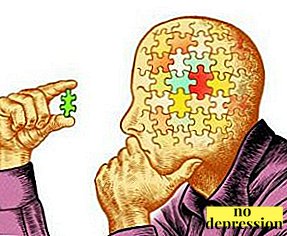
Consciousness - the highest brain function inherent in nature only to man.
This function is directly related to speech and is expressed in the ability of the brain to perceive, reflect and process the information coming from the surrounding reality, in the ability to plan and foresee their results, in the ability to control and regulate behavior.
Consciousness consists of various components: attention, memory, will. Each of them performs a specific function. So, Attention allows you to absorb information coming from outside.
Memory contributes to the understanding of this information and the ability of its application in the future. And will helps to target oneself to the achievement of the tasks set and obtaining the desired results.
Mind helps a person to know the world around him, to function successfully in society.
By acquiring knowledge about oneself, about other people, about nature, about the patterns of social life, a person gets the opportunity to successfully socialize in his environment.
Also thanks to consciousness it becomes possible manifestation of imagination. People can not only perceive real objects and phenomena, but also reproduce in their minds any desired images.
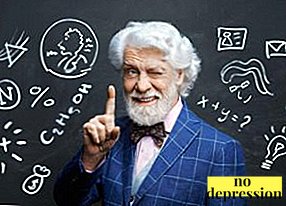
It is this property of the psyche that allows create works of art, make scientific discoveries.
With the help of consciousness, a person evaluates his actions, their compliance with existing requirements.
It produces principles of self-control, regulate your behavior.
Consciousness allows both to navigate in the present, and to predict the future - to make plans, to foresee the development of events.
Self-consciousness is a special higher form of thinking. It allows perceive yourself as a physical organism, as a person, with its inherent qualities, attitudes, emotions and feelings.
A person has the opportunity not only objectively evaluate your own individual traits, but also successfully integrated into the environment.
Due to the presence of self-consciousness, a person gets the possibility of continuous self-development and self-improvement. He freely defines his desires, needs.
Origin
There are two key concepts:
- Idealistic. Consciousness appears in human nature without the intervention of any earthly laws. There are various attempts to explain this approach. Thus, Kant was of the opinion that the mind exists in God and at the time of the appearance of man into the world enters it. From a religious point of view, a person is initially born unconscious, but in the first weeks of his life it penetrates into the body along with the soul.
- Materialistic. The mind is the result of the appearance in man of the ability to reflect the diversity of the surrounding reality. This concept is represented by three main theories: labor, the theory of genetic error, the theory of bifurcation.
The labor approach is based on the theory of the origin of C. Darwin’s species. The reason for the development of abilities lies in the joint work of people, the emergence of the need to use speech to communicate with each other.
According to the theory of genetic error, man became the result of the failure of the evolutionary development program. And the theory of bifurcation places emphasis on the possibility of a powerful leap in the development of nature, as a result of which a man with a formed mind has appeared.
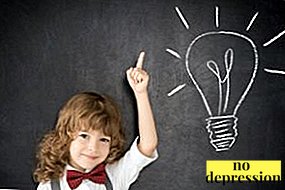
Disputes about the origin of consciousness conducted not only in the psychological plane. This question also interests philosophers, historians, physiologists, physicists.
Theory L. Kohlberg
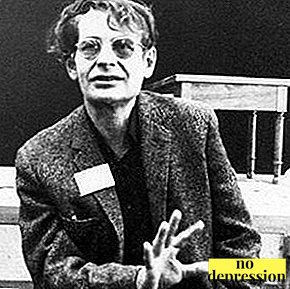
Special attention should be paid to L. Kohlberg’s theory of development moral thinking personality.
According to the scientist, the whole process of evolution, which a person goes through from early childhood to maturity, is directly related to cognitive activity.
Thanks ability to learn, a person takes possession of emotions, forms ideas about moral principles, understands his gender.
Kohlberg attracted children to psychological experiments aimed at identifying patterns of development of moral judgments. In the course of numerous experiments it was found that the moral consciousness of the individual consists of three levels:
- Pre-conditional. Actions are evaluated in terms of possible consequences.
- Traditionally moral. The values and attitudes recognized by society are recognized as more significant than the individual interests of the individual.
- Posttraditional. Moral judgments are formed on the basis of their own developed principles.
Kohlberg argued that the transition from one level of cultural development to another directly depends on age-related changes.
As you grow older child's moral attitudes influenced by the views of his parents, the level of education, preferences of peers, the desire to encourage by society, the development of logical thinking.
Prerequisites and conditions of occurrence
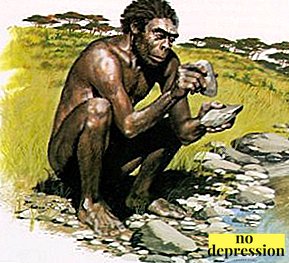
The main prerequisite for the development of human mental activity has become the emergence of the first tools.
Mastering these tools allowed people to start work.
The need for coordination has led to speech developmentas a way of communication.
In addition, labor itself is by nature prompted the development of consciousness: man comes to the realization that there is a subject and a goal that can be achieved with the help of this subject. And formed a focused activity.
The more people mastered the tools of labor, the further progress was, the higher their level of awareness became of their behavior.
In the process of joint activities, people came to understand that their personal needs are met at the same time as general needs. Appeared the first ideas about the public consciousness, common interests.
In ontogenesis

The level of thinking of the newly born child and adult vary widelyThis fact is not subject to dispute, unlike the question of the origin of consciousness.
Also, scientists agree that there is a direct relationship between the level of development of consciousness and the individual characteristics of a particular person, the specifics of his environment.
Special attention deserves the theory of A.N. Leontiev. According to the scientist, a person is born with a certain innate, unconditionally-reflex organization of behavior.
Then, in the course of his existence, he learns the historical experience of his ancestors, and it is this experience that is fundamental stage of development of consciousness.
The driving force that contributes to the assimilation of experience, is maturing.
Criteria, stages, levels
Exists three stages of development of inner perception:
- Ideas about your physical body, defining yourself as a separate organism.
- Assigning oneself to a certain social group, perception of one’s personality from the point of view of its social role.
- Full perception of your "I." An individual forms his own values, he feels like a full-fledged personality.
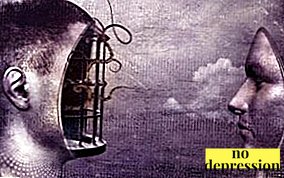
TO self-awareness criteria relate:
- degree of autonomy from the rest of the society;
- level of activity (ability to control yourself);
- recognition in other qualities that are inherent in the self;
- the presence of reflection - the ability to understand themselves, to improve and develop.
By these criteria, you can determine the degree of inner perception by the individual of his personality, identify existing problems and internal differences.
So, with a high degree of reflection, activity and autonomy, we can talk about the integrity of the individual and its successful integration into society without prejudice to one’s own individuality.
Self-awareness levels:
- directly sensual (sensations, experiences);
- holistic-shaped (maintaining your "I");
- reflexive (self-observation, introspection);
- purposefully active (synthesis of the three previous levels, resulting in the formation of numerous motivational, behavioral forms of thinking: self-control, self-expression, self-esteem, etc.).
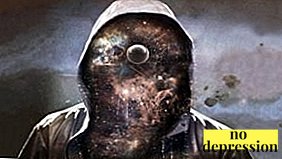
Higher level of mental development
Consciousness from a psychological point of view is the highest level of reflection of the properties, laws of the surrounding reality. It allows create an internal model of the external environment.
The result is the knowledge of oneself and society, the transformation of one’s personality, the surrounding reality.
Consciousness allows you to form goals, predict the development of events, predict the results of activities. Due to this, it becomes possible to effectively regulate the behavior of a person, purposeful organization of his activity.
In general, all the numerous functions of consciousness can be summarized in three main properties: building relationships, cognition, experience.
The ability to build relationships with other members of society, to interact, to carry out joint activities allows successfully socialize in the habitat.

The ability to learn allows learn from previous generations, to obtain knowledge of any objects, phenomena, processes.
Experience is expressed in the ability to feel, to express emotions.
Any purposeful activity of a person has a certain emotional coloring.
Consciousness formed only in social interactions. It can be developed and improved only in conditions of public life.
Without speech, culture, social institutions and groups, work activity, a person’s consciousness cannot form even at the most primary level.
In this way, There is no single approach to the question of the emergence and development of consciousness. But all scientists agree that the main condition for its existence is life in society.
About how human consciousness arose:



